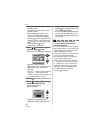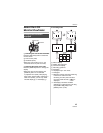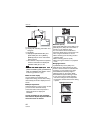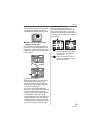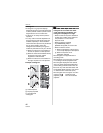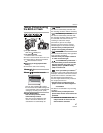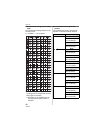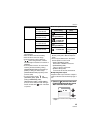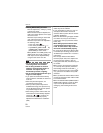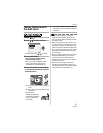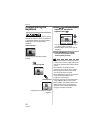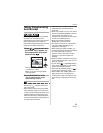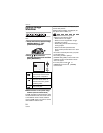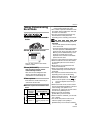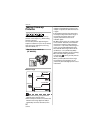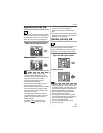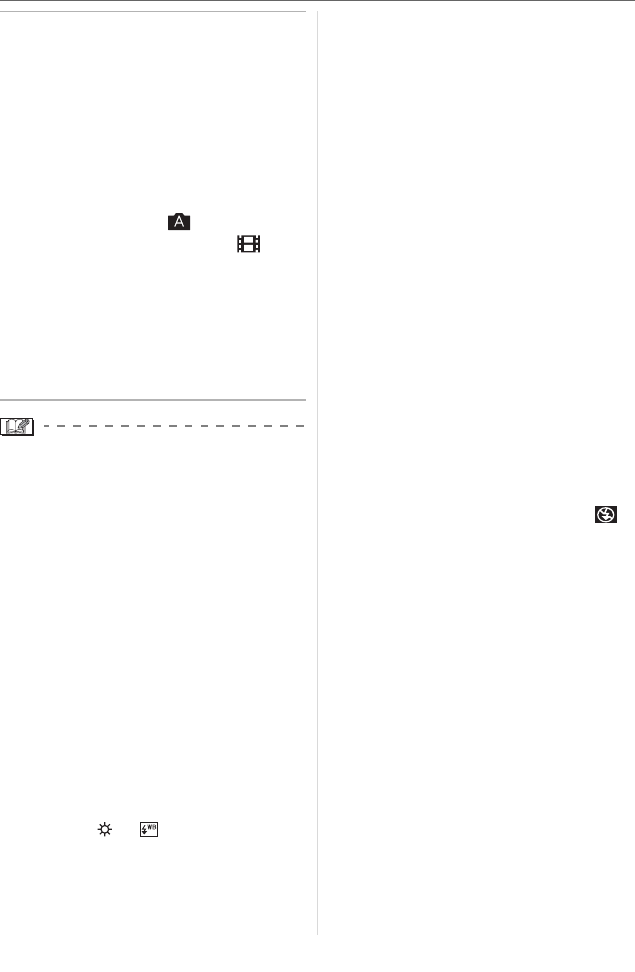
Advanced
50
VQT0X92
2 Press [MENU/SET] to finish.
• You can adjust from [L2 EV] to [K2EV]
in steps of [1/3 EV].
• When the flash output is adjusted, the
flash output value appears on the upper
left of the screen.
• The flash output setting is memorized
even if the camera is turned off.
• The flash output cannot be adjusted in
the following cases:
– In the auto mode [ ]
– In the motion picture mode [ ]
– In [SCENERY], [NIGHT SCENERY],
[FIREWORKS], [STARRY SKY] or
[HIGH SENS.] in scene mode
• When [DIREC. EX. COMP.] (P93) in the
[REC] mode menu is set to [ON], the
flash output can be adjusted directly
using the front dial or rear dial.
• Do not look directly at the flash at
close range when it is activated.
• Do not bring the flash too close to
objects or close the flash while it is
activated. The objects may be
discolored by its heat or lighting.
• Do not cover the photo flash with your
fingers or other objects.
• If you press the shutter button halfway
when the flash is activated, the flash icon
turns red.
• When the jitter alert appears, we
recommend using a tripod.
• When you take a picture beyond the
available flash range, the exposure may
not be adjusted properly and the picture
may become bright or dark.
• When taking a picture with the flash, the
white balance is automatically adjusted
(except for [ ], [ ]). However, the
white balance may not be properly
adjusted if the flash level is insufficient.
(P83)
• When the shutter speed is fast, the flash
effect may not be sufficient.
• If you repeat taking a picture, it may not
actually be taken even if the flash is
activated. Take a picture after the access
indication disappears.
• When the flash is being charged, the flash
icon blinks red, and you cannot take a
picture even when you press the shutter
button fully.
• When taking a picture with the flash,
we recommend removing the lens
hood. In some cases it may not allow
the scene to be illuminated properly.
• Do not close the flash soon after the flash
is activated prior to taking pictures due to
AUTO/Red-eye reduction etc. It causes a
malfunction.
• The red-eye reduction effect differs
between people. Also, if the subject was
far away from the camera or was not
looking at the first flash, the effect may not
be evident.
• When using a conversion lens (optional)
or a close up lens (optional), the built-in
flash setting is fixed to Forced OFF [ ].
• When you set burst mode or auto bracket,
only 1 picture is recorded for every flash
activated.
• When you attach an external flash, it takes
priority over the built-in flash. Refer to P99
for the external flash.
• When the dedicated flash (DMW-FL500 or
DMW-FL360; optional) is used, the flash
output can be adjusted and the flash
settings by picture-taking mode can be
used.



